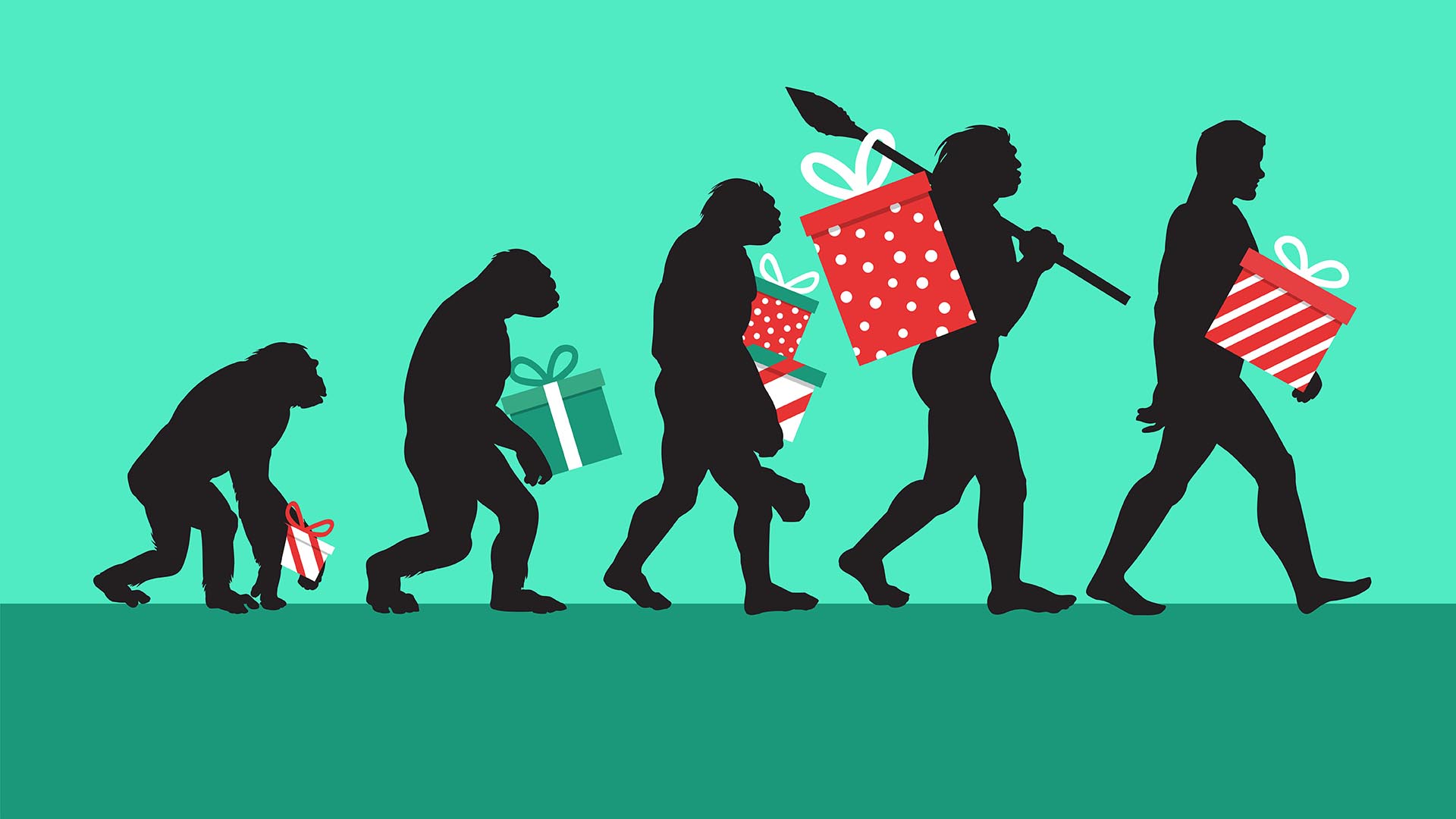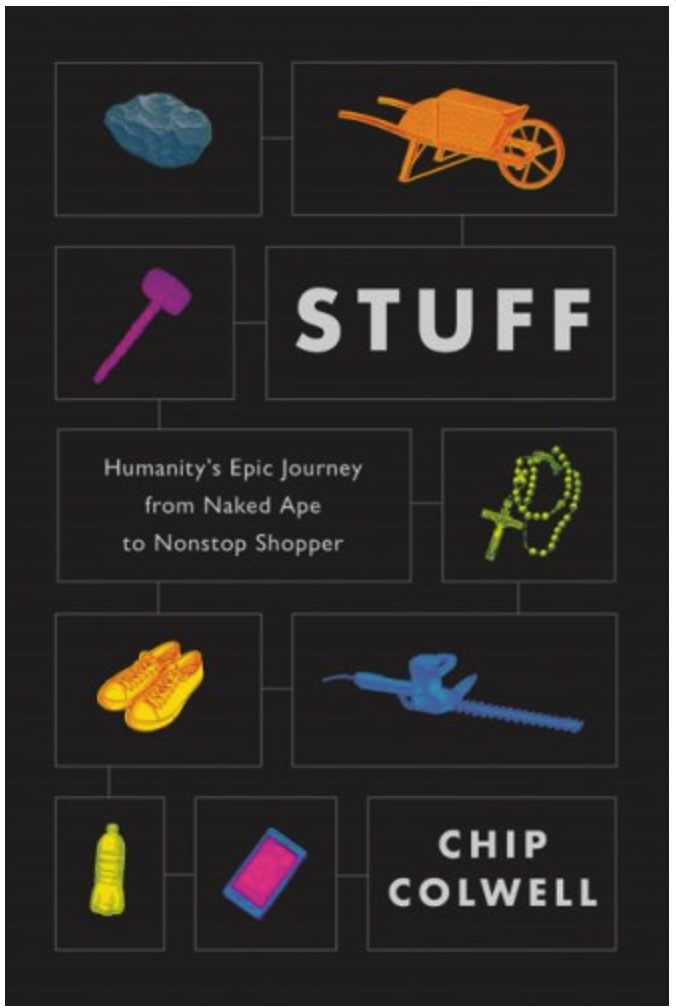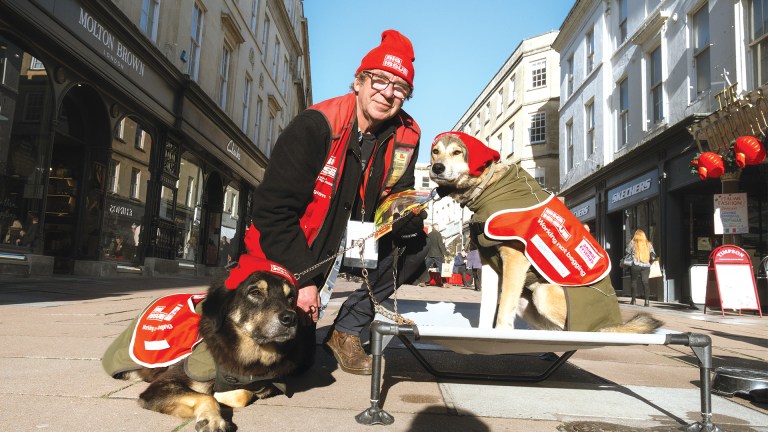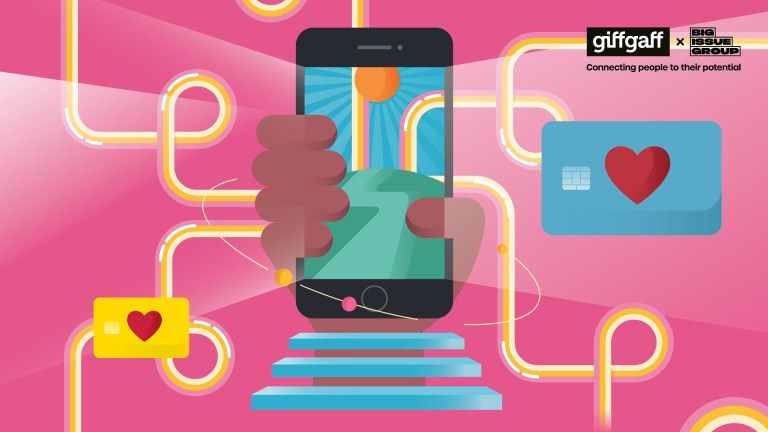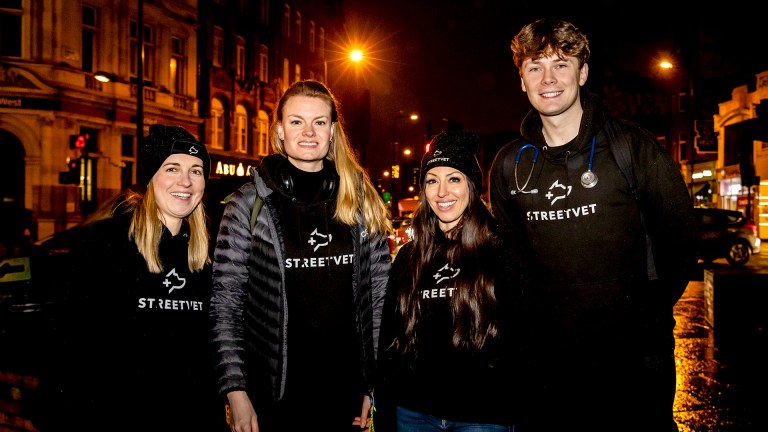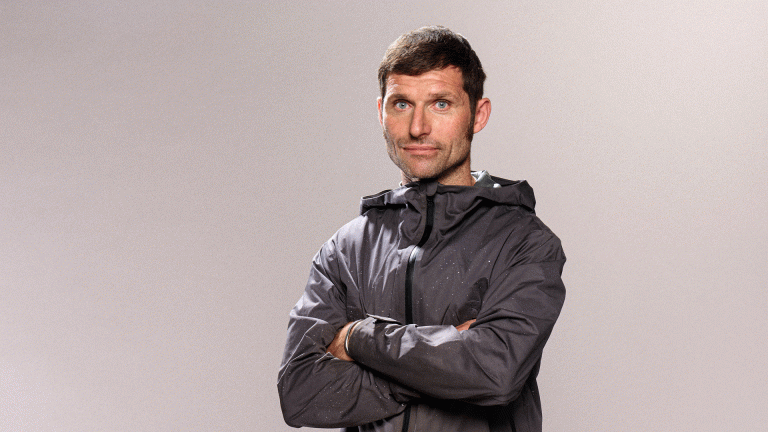It seems likely that our Homo erectus ancestors developed this instinct through the things they made nearly two million years ago in crafting symmetrical, tear-dropped shaped stone tools called Acheulean axes. Ever since then, we have made and loved beautiful things.
Symbols give us meaning
Though it has hazy beginnings, on this side of 50,000 years ago, our ancestors had fully developed an understanding of symbols. Symbols are the basis of religion (a statue represents a god), art (a painted image represents a thing), money (a coin represents a value) and much more.
Only with symbolic thinking do the things we make, purchase and give have such meaning in our lives.
Hoarding comes naturally
Many animals have developed a hoarding instinct to survive. For example, squirrels store food for the winter. Similarly, hoarding likely served many of our ancestors well.
When our ancestors invented high priests and emperors, those hoarding instincts became more obvious and exaggerated – at least for the few people who could control resources.
Today, with the easy availability of endless industrial goods, hoarding can become so extreme it is a medical affliction, defined as “persistent difficulty discarding or parting with possessions, regardless of their actual value”.
Advertising helps fund Big Issue’s mission to end poverty
Gifts build relationships
In a famous 1925 essay titled The Gift, the French anthropologist Marcel Mauss argued that giving gifts is a powerful force that binds people together. The idea is that when I give you a gift, I’m creating an obligation for you to reciprocate – to give me something back. Then, when you give me something back, I’m supposed to give you something back.
Because this back-and-forth expectation is an endless circle, it puts you and me into a permanent relationship. Gifts are social bonds wrapped in material form.
For most of human history, sharing food and resources was also an important way of expressing care for other people. Bringing home a basket of tubers was a kind of ancient love note.
The anthropologist Daniel Miller studied shopping among people in London. In his 1998 book A Theory of Shopping he found that they often thought of buying things as a way of showing thought and concern about the needs of the people in their homes. The abstract states: “We commonly assume that shopping is primarily concerned with individuals and materialism [but] the act of purchasing goods is almost always linked to other social relations, and most especially those based on love and care.” In this way, shopping can be an act of love.
Can we overcome our evolution?
Does all this mean we are just destined to be animals of consumption, shackled to our evolutionary history of needing stuff? Not at all. To recognise Black Friday and that living with stuff is to be human does not mean we lack a choice in how we live. From Diogenes to the Buddha to Jesus, there were many in our human story who knew we don’t need much to survive. And from modern minimalists to Marie Kondo to environmentalists, many have shown that we should ask what we can change about our material world.
Chip Colwell is an archaeologist and editor-in-chief of SAPIENS.
Advertising helps fund Big Issue’s mission to end poverty
Stuff: Humanity’s Epic Journey from Naked Ape to Nonstop Shopper by Chip Colwell is out now (C Hurst & Co, £25)
This article is taken from The Big Issue magazine, which exists to give homeless, long-term unemployed and marginalised people the opportunity to earn an income. To support our work buy a copy!
If you cannot reach your local vendor, you can still click HERE to subscribe to The Big Issue or give a gift subscription. You can also purchase one-off issues from The Big Issue Shop or The Big Issue app, available now from the App Store or Google Play
